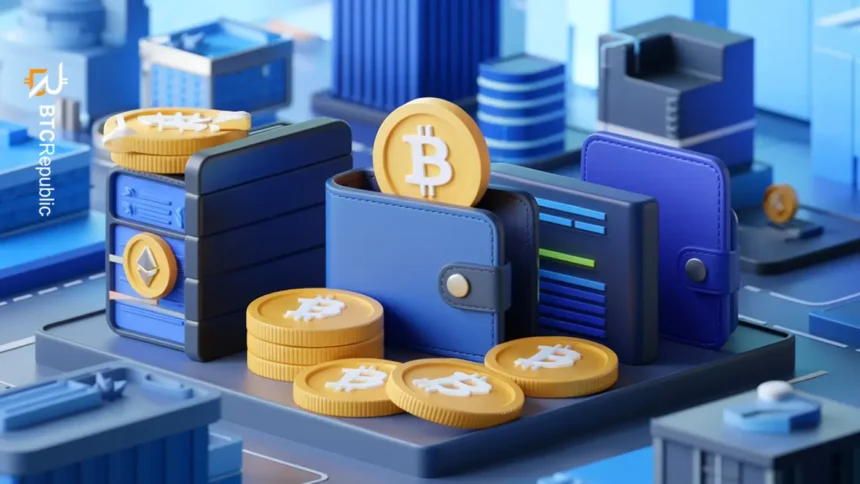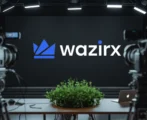Whether you are a beginner or an experienced crypto investor, the safety and security of your crypto asset should be paramount to you.
While several different centralized and decentralized crypto wallets claim to offer strong security for crypto assets, decentralized crypto wallets are more trustworthy. That is because decentralized wallets employ enhanced security and transparency.
With a decentralized crypto wallet, you have complete control over your private keys. That means no third-party authorization or trust is required.
- What is a Decentralized Crypto Wallet?
- Key Features of Decentralized Wallets
- Centralized vs. Decentralized Crypto Wallet: Stronger Security
- Centralized vs. Decentralized Crypto Wallet: Full Privacy
- Centralized vs. Decentralized Crypto Wallet: Complete Control
- Centralized vs. Decentralized Crypto Wallet: Zero Censorship
- 10 Best Decentralized Crypto Wallets
- Best Wallet
- Exodus
- Ellipal Titan 2.0
- Zengo
- Ledger Nano X
- Trezor Model One
- Safepal S1
- Trust Wallet
- Pros
- Cons
- MetaMask
- Blockstream Jade
- Conclusion
- Frequently Asked Questions (FAQs)
- What are decentralized wallets?
- What is the safest decentralized crypto wallet?
- Are Binance and Coinbase wallets decentralized or centralized?
- Is Trust Wallet decentralized or centralized?
- What fees do decentralized wallets charge?
- How secure are decentralized crypto wallets?
- Can I move crypto from a centralized wallet to a decentralized wallet?
In this article, we will examine the best decentralized crypto wallets, which will reshape how you engage with crypto and help you keep your digital assets safe and secure. We will also discuss their unique features and advantages. So, let’s dive in!
What is a Decentralized Crypto Wallet?
Before discussing the best decentralized crypto wallets, let’s define a decentralized crypto wallet.
A decentralized crypto wallet, often called a non-custodial, self-custody, or private crypto wallet, is any type of digital asset wallet that allows users full control over their assets and private keys.
Unlike centralized wallets, decentralized wallets are not managed by third-party entities such as cryptocurrency exchanges, making the wallet users the sole custodians of their assets.
Please note that although users can ‘easily’ transfer their crypto assets off a centralized wallet, there is a risk that the central authority behind the wallet can use its authority to lock your asset or block transactions at any moment.
Let’s briefly discuss the key features of decentralized wallets.
Key Features of Decentralized Wallets
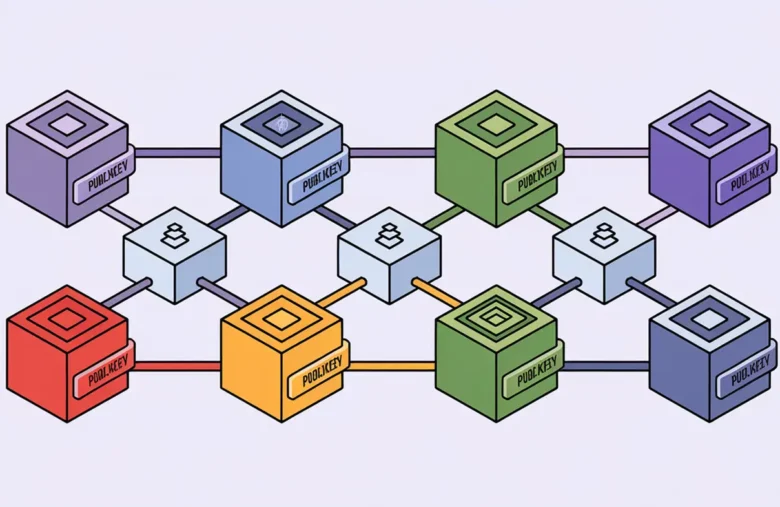
Here are the unique features of decentralized wallets that differentiate them from centralized wallets:
Centralized vs. Decentralized Crypto Wallet: Stronger Security
Decentralized crypto wallets offer stronger safety and security than centralized wallets. This is because each wallet type provides a different private key ownership structure.
A decentralized wallet gives its users full ownership and control over their private keys, reducing the risk of unauthorized access or hacking.
More so, decentralized wallets offer end-to-end encryption, an advanced encryption technique that further secures assets, transactions, and sensitive data.
Centralized vs. Decentralized Crypto Wallet: Full Privacy
Unlike centralized wallets, decentralized wallets give users complete privacy. For instance, decentralized wallet users can transact anonymously, not disclosing their personal information, thereby reducing the risk of identity theft.
Also, a decentralized wallet gives its users more privacy by eliminating intermediaries or third parties, ensuring the privacy of their financial data.
Centralized vs. Decentralized Crypto Wallet: Complete Control
A decentralized wallet gives its users full autonomy and control over their assets, eliminating the involvement of third-party services.
You can access your asset on the decentralized wallet anytime, anywhere, as long as you have an internet connection. Your asset in a centralized wallet is at the mercy of the authority behind the wallet.
Centralized vs. Decentralized Crypto Wallet: Zero Censorship
Decentralized wallets offer resistance to censorship. Nobody can censor your assets or transactions, protecting your assets and transactions from undue interference and external control.
Do you remember the collapse of BlockFi and FTX cryptocurrency exchanges in 2022? This left numerous users wondering whether their crypto assets were lost forever. This is just one of the many downsides of centralized wallets.
10 Best Decentralized Crypto Wallets
Now that you know what decentralized wallets are, their features, and their advantages over centralized wallets, let’s consider the best decentralized wallets to try in 2024.
Best Wallet

Although Best Wallet is a relatively new decentralized wallet, it made our list as the overall best decentralized crypto wallet—just as its name said.
So, what makes Best Wallet the safest decentralized crypto wallet?
This wallet offers many unique and improved features beyond keeping and transferring cryptos, which placed it ahead of its rivals. It is also backed by a decentralized crypto exchange, enabling you to store, trade, and transfer assets safely, securely, and anonymously.
Best Wallet’s features include multi-chain capabilities, which enable you to interact with and store your different assets on multiple blockchain networks.
Other amazing security features include 2FA and fingerprint ID. The wallet doesn’t even require KYC information.
This wallet also features a gallery for NFT collections. So, aside from storing crypto, you can also buy, send, and store NFTs on Best Wallet. It has a native token, $BEST, that you can stake to earn more passive income.
Finally, the wallet has a crypto news feed that offers users exclusive news and insights on crypto, airdrops, and NFTs.
Pros
- Best Wallet is fully decentralized with multi-chain functionality
- It offers fast registration and does not require KYC validation
- Offers increased security
- Offers easy access to NFTs
- Offers staking of its native token $BEST
- Provides a gallery for fresh viewpoints on emerging tokens
Cons
- Some functions on the wallet are not operational yet.
Exodus
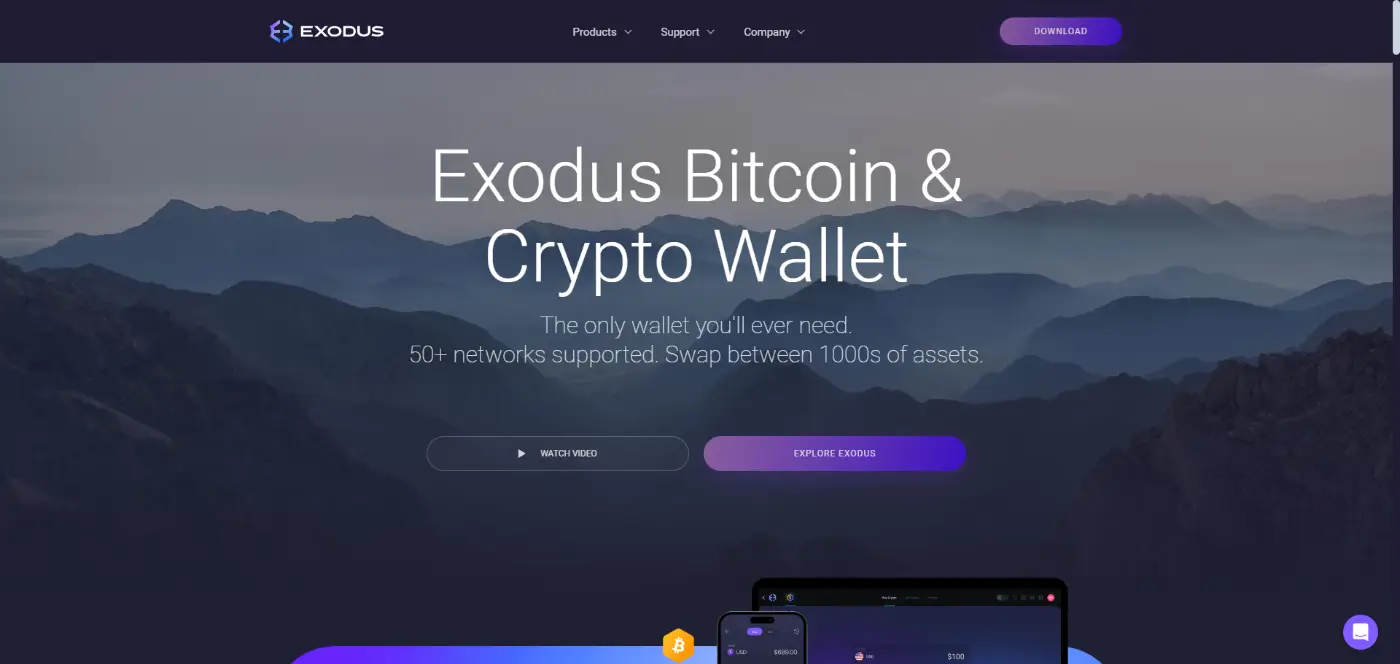
Exodus is another amazing decentralized wallet that supports more than 250 crypto assets, including BTC and ETH. The wallet easily allows you to switch between different cryptos within it.
Although Exodus is fully decentralized, it lacks the 2FA. But this is not a problem if you keep your device and private key safe.
This wallet offers you the opportunity to earn passive revenue by staking some crypto assets like Cardano (ADA), Solana (SOL), and Algorand (ALGO).
If you need help, you can easily contact customer service via email or live chat at any moment.
Pros
- Exodus wallet comes with a user-friendly interface
- It offers multi-currency support
- It has an inbuilt crypto exchange
Cons
- It has no 2FA security feature.
Ellipal Titan 2.0

This is undoubtedly the most secure decentralized crypto wallet on this list. It is a cold crypto hardware wallet that keeps your pirate keys offline and out of the reach of online threats. With Ellipal Titan 2.0, you don’t have to worry about phishing attacks or cyberattacks.
Unlike other hardware wallets, this cold wallet beefs up its security by eliminating the need for a Bluetooth connection or a USB when transferring crypto—it completely keeps your assets offline.
ELLIPAL Titan 2.0 offers dual-layer defense and features a CC EAL 5+ secure element chip. Both of these guarantee the total security of this crypto wallet.
Being metal-seared, this wallet is resistant to disassembling and/or tampering.
ELLIPAL Titan 2.0 has a 4in. IPS full-laminated touch display for easy transactions. To scan the generated QR code, you only need the Android or iOS app.
Pros
- ELLIPAL Titan 2.0 is a fully metal-seared hardware wallet
- Transactions are carried out 100% offline
- It supports over 40 blockchain networks
- Users can store and transact more than 10,000 currencies and tokens
- Being metal-seared, it features anti-tampering and anti-disassembly elements
- It comes with a 4in. IPS display
Cons
- Being a hardware, it’s a bit pricey
- It only supports the staking of 5 cryptos
Zengo
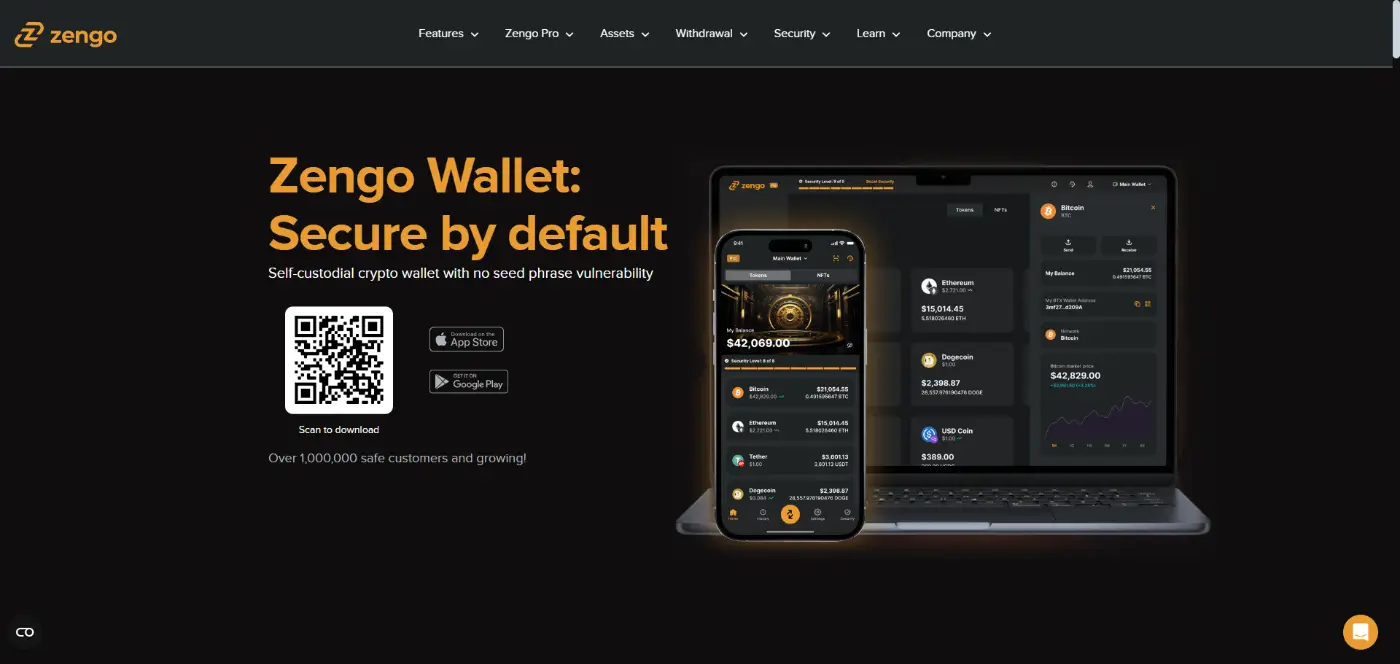
The Zengo decentralized wallet has a unique feature. It doesn’t offer the typical private key or seed phrase for backup and asset recovery like other wallets.
Instead, this self-custody wallet features a three-factor authentication (3FA) security feature, which easily replicates the wallet on any new device using your email address, a 3D facial scan, and a recovery file.
This wallet is so secure that you can rest assured that your assets are safe anytime, any day. To further prove its commitment to security, Zengo wallet conducts annual software audits. Since its launch in 2018, this wallet has never recorded any hacking incidents.
Pros
- Zengo offers strong safety and security for your assets
- DApp marketplace
- Secure DApp connections via WalletConnect
- Trading of over 120 crypto assets in-app
- NFT gallery
- Trading of NFTs on multiple blockchains
- 24/7 customer support
- It offers annual software audits
Cons
- It does not support many Ethereum L2 tokens yet
- Prices of crypto assets are marked up on the app compared to market prices
Ledger Nano X
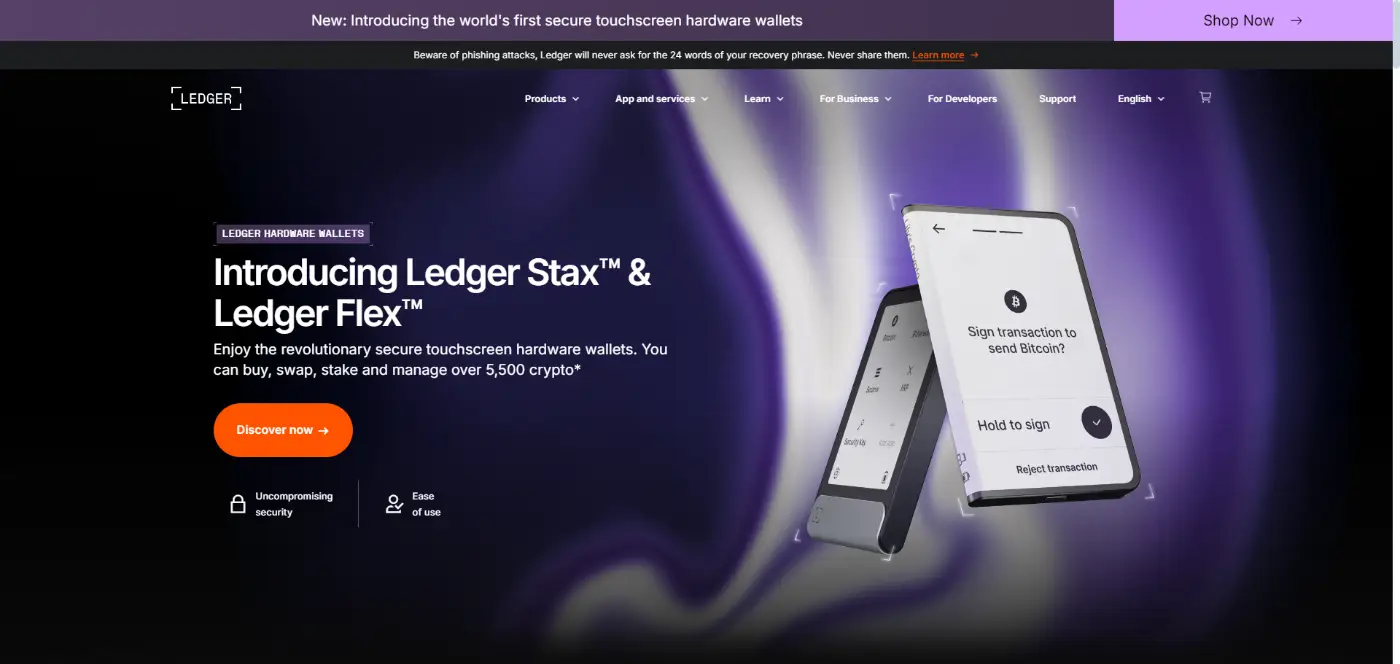
Here is another hardware wallet with top-notch security features. The Ledger Nano X wallet comes as a portable USB stick that is very easy to keep and carry.
Like the Ellipal Titan 2.0 wallet, the Ledger Nano X wallet is always offline to eliminate any possibility of cyber theft. It also keeps your private keys offline, giving you complete control over your cryptos.
Although Ledger Nano X is not strictly a decentralized wallet, it is an offline, non-custodial cold wallet that stores your private keys or recovery phrases.
To enable transactions on this wallet, you need the Ledger app and a 4—to 8-digit PIN. Transactions require connecting the wallet to the Ledger app via Bluetooth or a USB type C cord. In case you misplace your private keys, you can easily request a backup passphrase.
Ledger Nano X wallet offers access to other DeFi and NFT apps. It also supports over 1500 crypto assets and several blockchain networks, including Bitcoin, Ethereum, Solana, BNB Chain, Cardano, Ripple, TRON, Polkadot, Dogecoin, and Avalanche.
Pros
- Ledger Nano X is safe and secure as it requires a 4- to 8-digit PIN to authorize transactions
- It offers remote recovery in case the wallet is lost, damaged, or stolen
- It comes with a user-friendly interface
- It offers offline private key storage
- Premium DApp offerings
Cons
- Being a hardware wallet, its price may not be affordable for everyone.
- Not completely decentralized
- Recent events have undermined user trust.
- It is vulnerable to physical damage.
Trezor Model One
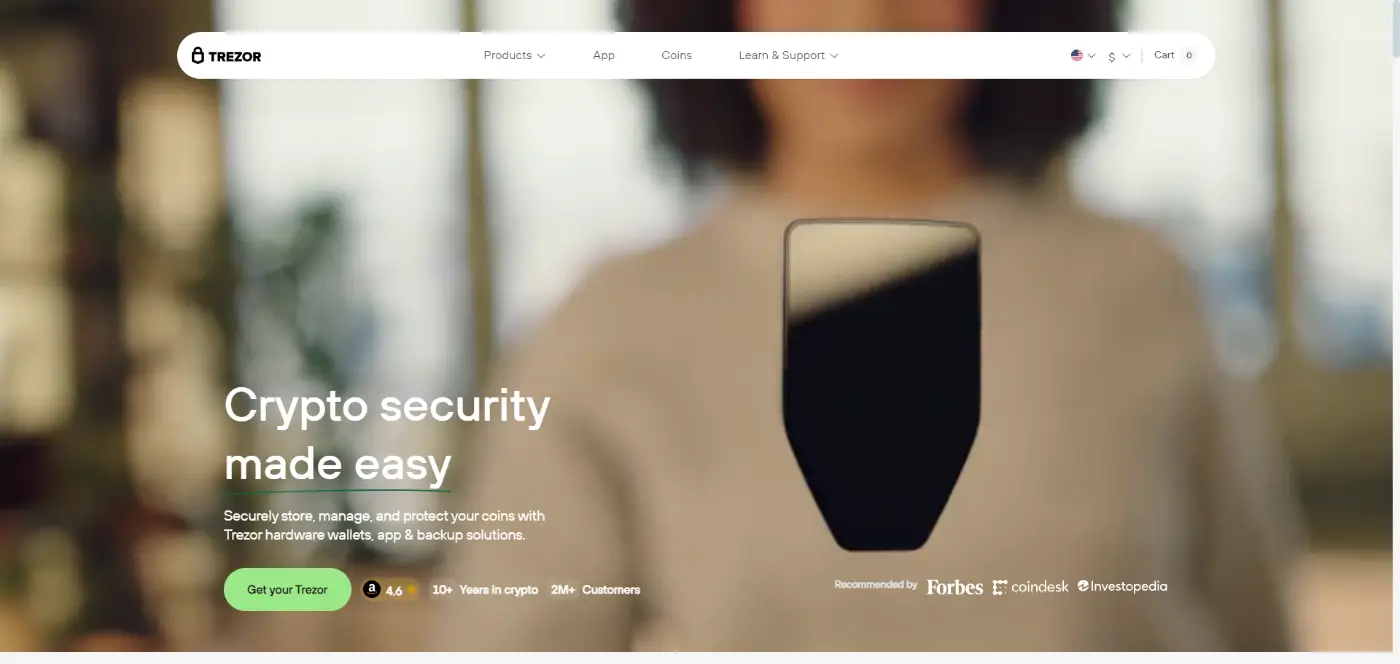
If you consider both Ellipal Titan 2.0 and Ledger Nano X expensive, there is a less expensive hardware wallet for you—the Trezor Model One.
Despite being affordable, this cold wallet is still very safe and secure, allowing you to keep your assets and private keys offline. Unlike the other two hardware wallets above, Trezor Model One transactions don’t require an app. You only need to key in your PIN on the device to authorize the transaction.
In case of loss or theft, you can also easily retrieve this decentralized wallet remotely.
While Trezor Model One has excellent security features, it supports a smaller number of blockchain networks, including Bitcoin, Bitcoin Cash, Ethereum, BNB Chain, Dogecoin, Stellar, etc.
Pros
- Trezor Model One touted itself as one of the most affordable Bitcoin hardware storage wallets
- It supports Bitcoin, Ethereum, Bitcoin Cash, and other well-known coins
- It offers excellent security features
- It can be quickly recovered in case of loss or theft
- This wallet allows users to easily stake crypto.
Cons
- It does not support for Ripple, Cardano, and Ripple.
Safepal S1

Here is another decentralized hardware wallet for 2024. It has a 1.4-inch colour screen and a five-button keypad.
It helps you to keep complete ownership of all your assets and does not require any KYC registration.
Transactions on Safepal S1 are completely offline but require scanning QR codes with the Safepal app. More so, this wallet utilizes a signature technique for transactions that are 100% air-gapped.
Safepal S1 gives users access to over 100 blockchain networks and all the tokens available on them.
For maximum security, private keys are generated by a random number generator to authorize transactions. It features an anti-tampering technique and will auto-destroy itself if it detects any external threat.
Aside from cryptocurrencies, SafePal S1 allows users to store NFTs and communicate with other DApps.
Pros
- SafePal S1 offers complete control of your asset
- It does not require KYC registration
- It generates private keys randomly using a random number generator.
- It grants access to 100+ blockchains.
- It is affordable
Cons
- It does not have any staking functionality.
Trust Wallet

Trust Wallet is another popular decentralized crypto wallet. It remained a decentralized wallet despite being acquired by Binance in 2018. With Trust Wallet, private keys are only shown during wallet setup as a 12-word passphrase. That means you need to copy the passphrase and keep it safe.
Trust Wallet is available as an app that you can easily download on your Android or iOS device or as a browser extension, whichever version you wish to use. It also easily integrates with other DApps.
The wallet is free and supports over 70 blockchains and assets under them. It also offers a staking mechanism at no cost for several cryptocurrencies like Cosmos, Tezos, Tron, BNB, and Algorand.
Despite being a decentralized wallet, Trust Wallet requires MoonPay and Simplex to process its credit/debit card payments, which may not appeal to many users.
Pros
- Trust Wallet’s inbuilt staking tool is free.
- It is compatible with over 4.5 million NFTs and cryptocurrencies
- It allows easy access to DApps like Uniswap and OpenSea
Cons
- Its browser extension is not supported on Firefox browsers
- It links with MoonPay and Simplex to process credit/debit card payments.
MetaMask

Metamask is one of the best decentralized crypto wallets for storing Ether and other ERC-20 tokens. It is free, and users can download either the mobile app or the web browser extension, which is available for Chrome, Brave, Firefox, and Edge.
Just like Trust Wallet, MetaMask gives users a 12-word backup passphrase at sign-up, which they must keep safe. Users must also supply a password at each wallet launch to safeguard their assets.
By default, the MetaMask wallet connects to the Ethereum network, but users can connect manually to other networks. MetaMask offers inbuilt staking tools for Rocket Pool and Lido and centralized token trading.
For better exchange rates, MetaMask integrates with DApps like PancakeSwap and UniSwap.
Pros
- Metamask is one of the best decentralized crypto wallets
- It facilitates NFT storage
- It comes with an inbuilt feature for token staking and swapping
Cons
- Metamask is not compatible with tokens like Bitcoin, Solana, and Cardano
- It charges a 0.875% fee for token swapping
- It supports only Ethereum staking
Blockstream Jade
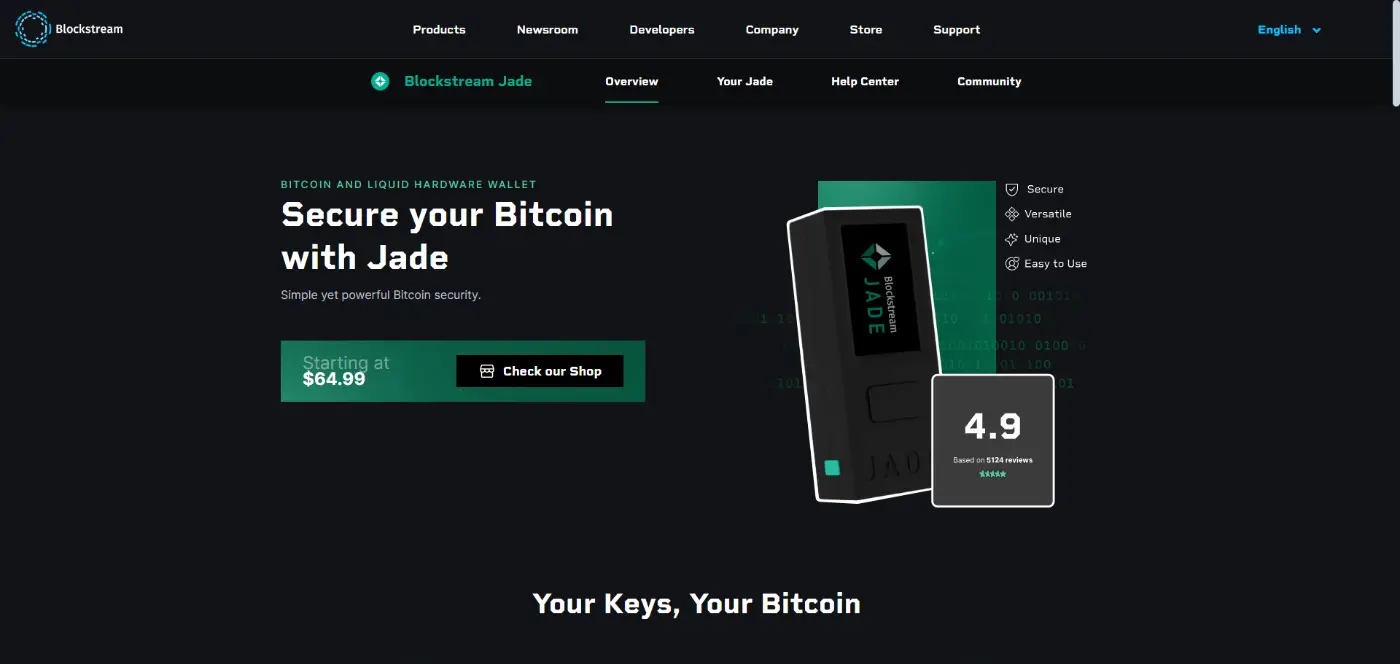
Blockstream Jade is another cold wallet you should try if you consider decentralized trading.
Being a fully decentralized crypto wallet, Blockstream Jade does not need to connect to the internet to allow users to store their assets. Instead, it uses offline QR codes to authorize transactions.
However, this wallet allows users to manage their cryptocurrencies online using a compatible wallet app called Blockstream Green. Blockstream Green uses Multsig Shield technology and a recovery phase to ensure continuous security.
Currently, Blockstream Jade supports only Bitcoin, Bitcoin Liquid (L-BTC), and Tether USDT.
Pros
- Blockstream Jade is an affordable hardware wallet
- It offers a virtual secure element
- Transactions are verified with offline QR codes
- It utilizes a Multisig Shield technology
Cons
- This wallet supports a limited number of cryptos.
Conclusion
While centralized and decentralized wallets offer good security, high transaction speed, and affordable prices, decentralized crypto wallets offer users many more benefits.
This includes stronger security, full privacy, complete control, and zero censorship, which give users full control of the assets and private keys, enabling investors to become their banks.
Decentralized wallets are also ideal for connecting to Web3 apps if you want to remain anonymous.
However, always remember that you risk losing your assets on decentralized wallets, too, especially if you lose your private key or hard wallet—your assets may likely be unrecoverable.
Therefore, you need to choose wisely when choosing a decentralized crypto wallet. If you have chosen your preferred decentralized wallet and need to save some assets, here are 11 easy and legitimate ways to get free Bitcoin.
Frequently Asked Questions (FAQs)
What are decentralized wallets?
Decentralized crypto wallets are often called non-custodial, self-custody, or private crypto wallets. They give their users complete control over their assets and private keys. That means you are the complete keeper of your assets, safe, and lock.
What is the safest decentralized crypto wallet?
There are several safe decentralized crypto wallets based on users’ preferences, but the safest ones are the hardware wallets, such as Ellipal Titan 2.0, Trezor Model One, and Ledger Nano X. Users need to buy these hardware wallets, and some of them can be expensive.
Are Binance and Coinbase wallets decentralized or centralized?
Although Binance and Coinbase are centralized exchanges with centralized wallets, they still have decentralized wallets that operate independently from their exchanges. Binance’s decentralized wallet is called “Binance Web3 Wallet,” while Coinbase’s decentralized wallet is called “Coinbase Wallet.”
Is Trust Wallet decentralized or centralized?
Although managed by a centralized exchange, Trust Wallet is a decentralized wallet for iOS, Android, and Chrome browser extensions.
What fees do decentralized wallets charge?
While some decentralized wallets are free and charge nothing to receive and send ( though users may need to pay gas fees), some hard wallets charge a certain percentage of the transaction amount.
How secure are decentralized crypto wallets?
Decentralized crypto wallets are touted as very secure because they give users complete control of their assets and private keys. However, they are also exposed to the risk of theft and hacking, especially if the private key is compromised.
Can I move crypto from a centralized wallet to a decentralized wallet?
Moving your assets from a centralized wallet to a decentralized wallet is possible. However, this sometimes depends on the centralized exchange. For instance, Robinhood crypto exchange allows you to move your asset to an external decentralized wallet, while SoFi does not.


